Markets likely to make positive start on firm global cues
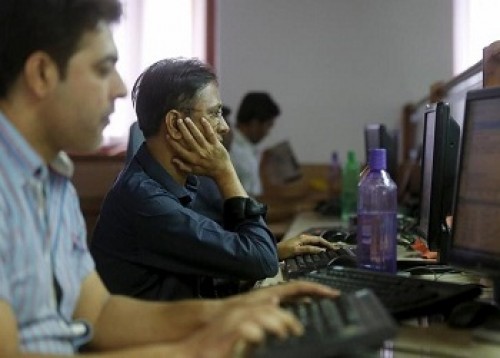
Indian equity benchmarks ended with sharp losses on Monday on account of rising Covid-19 cases. Today, the start of session is likely to be positive on firm global cues. Traders will get support as India has attracted record total FDI inflow for the first ten months of a financial year in 2020-21. Accordingly, the inflow rose to $72.12 billion during April to January, 2021, 15 per cent higher as compared to the first ten months of 2019-20, when it stood at $62.72 billion. The FDI equity inflow grew by 28 per cent in the first ten months of FY 2020-21 ($54.18 billion) compared to the year ago period ($42.34 billion). In terms of top investor countries, Singapore is at the apex with 30.28 per cent of the total FDI equity inflow followed by USA (24.28 per cent) and UAE (7.31 per cent) for the first ten months of the current financial year 2020-21. Further, support may also come as the country witnesses a rapid resurgence of coronavirus cases, a Finance Ministry report has exuded confidence in the Indian economy and termed the economic recovery as resilient citing improvement in high frequency indicators. The Monthly Economic Review for March 2021 released by the Department of Economic Affairs (DEA) said that the agricultural sector remains the bright spot of Indian economy with foodgrains production touching 303.3 million tonnes in 2020-21 beating record production levels for the fifth consecutive year in a row. Trades may take note of report that Niti Aayog CEO Amitabh Kant said India is well-positioned to become a global leader in Artificial Intelligence (AI) and there is a need to adopt it across all sectors. Kant further said the government has a crucial role to play in positioning India as the tech garage of the world. He also said AI has been catalysing leadership in the last few years and it is a game changer. However, traders may be concerned as Care Ratings has said Maharashtra’s radical lockdown move will have an economic impact of Rs 40,000 crore, with the trade, hotels and transport sector to bear the biggest dent. The rating agency said the loss of economic activity will have a 0.32 per cent impact on the gross value added (GVA) growth at the national level. It revised down its national GDP growth estimate to 10.7 - 10.9 per cent from the 11 - 11.2 per cent given a week ago. Meanwhile, with a daily increase of 96,557 in total Covid-19 cases, the second-highest so far, India’s tally of coronavirus cases has risen to 12,684,477 in the last 24 hours, Worldometer showed. Active cases are nearing the 800,000-mark. India’s tally of new cases is growing faster than most others in the top-five list of countries with the highest daily number of Covid-19 cases. The death toll from the deadly infection stands at 165,577. Maharashtra reported over 47,000 new coronavirus cases on Monday, nearly 10,000 cases less than Sunday when the state witnessed its highest single-day spike since the pandemic began.
The US markets ended higher on Monday as a strong bounce in US job growth and solid data in the services sector raised expectations for a swift economic recovery from the pandemic. Asian markets are trading mostly higher in early deals on Tuesday after major indexes on Wall Street surged to record closing highs overnight.
Back home, Indian equity benchmarks ended sharply lower with losses of over one and half percent on Monday, as a record jump in the Covid-19 cases in the country which led to lockdown-like restrictions in the economically important state of Maharashtra spooked investors. Markets made negative start and enlarged their losses in morning deals, as the sentiments remained down-beat with ratings agency Ind-Ra stating that further surge in global commodity prices will have serious implications for India's economy which is still struggling to come out of the Covid-19 impact. It also stated a higher retail inflation not accompanied by a commensurate increase in wage growth will adversely impact the consumption demand and in turn investment revival in the economy. Indian equities continued to witness bloodbath in afternoon session, as the survey report showed Indian manufacturing activity eased in the month of March but it remains above the boom-or-bust line of 50 that separates expansion from contraction, as firms scaled up production and input buying in line with another upturn in sales. As per the report, the Nikkei India Manufacturing Purchasing Managers’ Index (PMI) - a composite single-figure indicator of manufacturing performance - stood at 55.4 in March as against 57.5 in February. Sentiments also remained dampened as Reserve Bank of India (RBI) data showed that the country's foreign exchange reserves declined by $2.986 billion to reach $579.285 billion in the week ended March 26. In the previous week ended March 19, the forex kitty had increased by $233 million to $582.271 billion. It had touched a record high of $590.185 billion in the week ended January 29, 2021. The fall in reserves was on account of a decrease in foreign currency assets (FCA), a major component of the overall reserves. Finally, the BSE Sensex fell 870.51 points or 1.74% to 49,159.32, while the CNX Nifty was down by 229.55 points or 1.54% to 14,637.80.



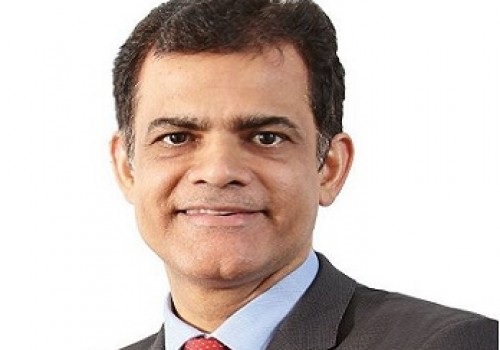


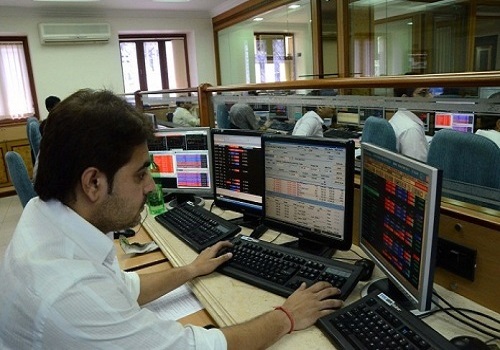

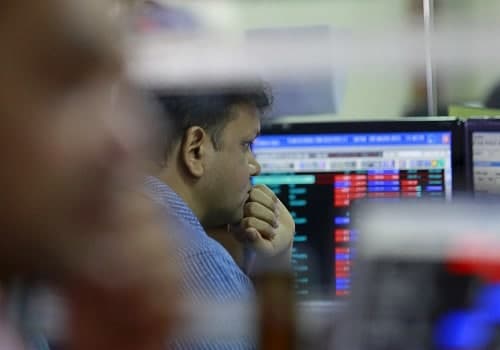

Tag News
More News
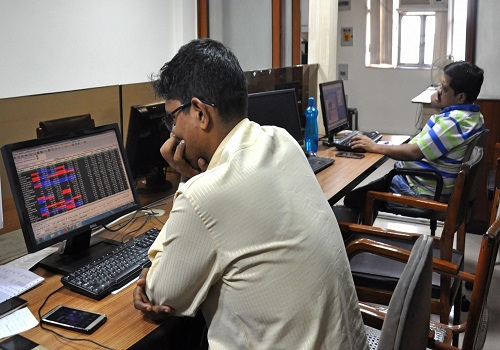
Opening Bell : Markets likely to make cautious start on Friday

.jpg)







